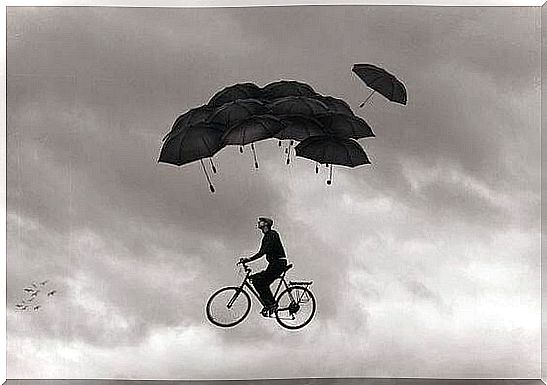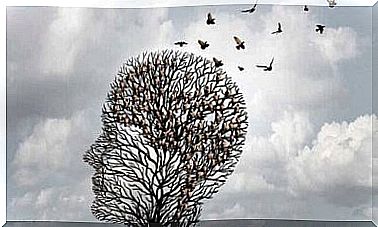The Dunning-Kruger Effect: Fictitious Inferiority And Superiority

The Dunning-Kruger effect is a distortion of thought that can be summed up as follows: stupid people think they are more intelligent than they are and intelligent people think they are stupider. Or, it may be more accurate to say that: ignorant people are sure that they know a lot, and those who know a lot feel ignorant.
This strange effect was discovered by David Dunning and Justin Kruger, two North American researchers from Cornell University. The former is a professor of psychology who one day came across some news that left him perplexed. It was a case of a robbery committed by a 44-year-old man named McArthur Wheeler. On the news, they told that he had robbed two banks, without a mask and in full daylight. He was taken within a few hours.
What caught Dunning’s attention was the robber’s explanation. He indicated that he had not used a mask, but that he had smeared lemon juice on his face. He hoped it would make him invisible in front of the security cameras.
How could he believe such nonsense? Some friends had “taught” him the trick and he had tried it: he had smeared himself with lemon juice and taken a picture. He could even see that his face was not visible in the picture. Of course, it was the same lemon juice that made him unable to see that he had focused the camera on the ceiling and not on his face. “How can anyone be so stupid?” David Dunning asked himself.
The Dunning-Kruger experiment
After long discussions about the robber’s behavior, Dunning came up with a question that should serve as a hypothesis for further research: Is it possible that an incompetent person is not aware of his own incompetence, precisely because of it ? The question sounded like a tangle of thoughts, but it seemed reasonable.

It was then that he suggested that his best student, young Justin Kruger, should make a formal inquiry into the matter. This is how they decided to organize a group of volunteers to participate in an experiment. Each participant was asked how competent they considered themselves to be in three different fields: grammar, logical argumentation and humor. They were then tested in their real competence in the various fields.
The results of the experiment confirmed what Dunning and Kruger already suspected. Namely, that the participants who had defined themselves as “very competent” in the various categories, had the lowest test results. At the same time, those who had initially underestimated themselves received the best test results.
Nowadays it is common to see people talking with apparent authority about things they really know quite a bit about. At the same time, the real experts are often far less categorical in their statements as they know how extensive the field of knowledge is and how difficult it is to establish something with absolute certainty.
Analysis of the Dunning-Kruger effect
The organizers of this study realized not only that such a cognitive bias existed, but also that the most incompetent people tended to underestimate the most competent. Therefore, they were much safer and had a stronger self-esteem, despite their own ignorance. Or maybe just because of it.

After conducting the experiment, the researchers came up with four definitions of what constitutes the Dunning-Kruger effect:
- People are unable to identify their own incompetence.
- They tend not to recognize the competence of others.
- They are not able to see the extent to which they are incompetent in a particular field.
- If they are trained to increase their competence, they will be able to recognize and accept their previous incompetence.
Once the effect of the distortion in these individuals was established, the question remained as to why this phenomenon occurs. Dunning and Kruger stated that cognitive bias occurs because the ability to do something right is the same as the ability required to evaluate an act. Put another way: how can you realize that you are doing something wrong if you do not know how to do it right?

High-performing people also have cognitive bias. In this case, the researchers determined that it was a result of a misconception, also known as “false consensus”. This error is about certain people overestimating the degree of consent they have with others.
You have probably experienced the situation where two people engaged in a discussion try to resolve the discussion by involving a third person. The two parties consider the third person to be neutral in relation to being able to resolve the discussion. This is where the false consensus comes into play, as the two parties are convinced that the neutral party is like themselves.
Something similar happens when people achieve good results in an activity. For them, it is so easy that they can see no reason why it should not be as easy for others.









